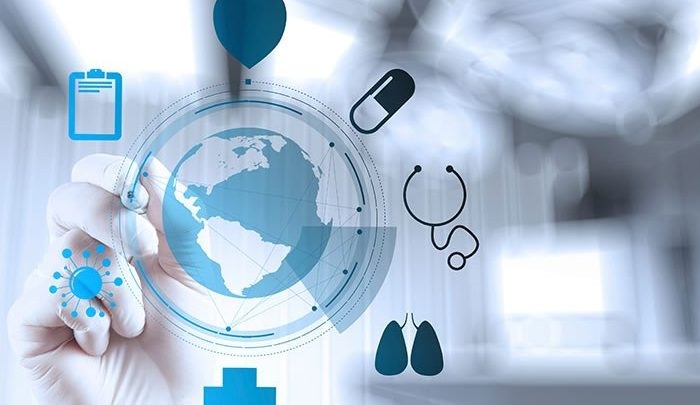EHR stands for Electronic Health Record & it is an electronic version of a patient’s medical history. It is a process in which patients’ medical and insurance records are collected & arranged systematically right from the beginning till the end of the treatment.
Electronic health records aim at providing better health care and hospital revenue cycle management. There are multiple advantages of EHR as it aims at improving security, provides fast access to the needed patient records. Since the process is totally software-based, therefore, it offers many benefits. The documents are always secure in the software and servers and cannot be lost or tinkered with.
There are two significant components of running a health care service. The first one is patient care and the second one is revenue cycle management(RCM). Both of these components must work hand in hand for a seamless working environment. RCM is an important part of providing effective patient care. To maintain healthy RCM, EHR in revenue cycle management is very much required.
How EHR Brings Efficiency in Revenue Cycle Management:
Decreases Medical Error
Medical errors are one of the prominent problems of word medical industry. Each year it costs a huge amount of money to the medical industry. Add this to the level of productivity loss and you are seeing even higher issues. Medical issues can cause mistakes related to treatment and medical procedures that may put the lives of patients in jeopardy. Moreover, the records access is available all the time, and any professionals don’t have to go through all physical documents to find a particular one. Even records for a particular day or time are available without hassle. It leads to productivity, saving of time & money for the health care providers.
By reducing these errors, hospitals and patients can benefit from EHR platforms.
Improved Efficiencies And Lower Health Care Costs
Health information systems result in improved health care coordination, preventative medicine, and reduced waste. Providing accurate, complete, and up-to-date information about patients at the point of care is another benefit of an EHR system. As compared to handling physical documents, there is no risk of losing documents or overlapping with other patient’s records or misplacing them.
Elevate Security And Privacy In Revenue Cycle Management
Data privacy and data security are other advantages of EHR. EHR systems use modern software and apps. Few of them enable clinicians to interact with patients safely while maintaining aIt improves diagnostic accuracy, reduces medical errors, and increases the safety of patient care high level of privacy.
However, the centralized aim is to keep security and privacy with high standards. It is also essential for the health care sector to adhere to HIPPA guidelines to maintain a process that keeps the patient’s information secure. Thus, EHR is helpful to maintain the PHI restrictions. These high standards enable passwords to protect encrypted electronic patient records from unauthorized access. Patients and health care providers feel very secure about the entire process due to these features of EHR.
Help Bring Down Redundancies And Duplicacy
Dealing with redundant and duplicate data can result in a nightmare for hospital revenue cycle management. However, effective EHR brings it down as each document gets stored in the individual patient record in reliable software and servers. Moreover, completing paperwork can be a frustrating task for patients undergoing medical care. Particularly if they have to repeat the same paperwork multiple times. The use of computerized physician order entry (CPOE) may also be more efficient for physicians than handwriting records. Those in health care can spend more time directly with patients due to the EHR technology.
Better care That Goes Hand In Hand With Revenue Cycle Management
Clinicians are able to concentrate on patient care better because EHRs save time, provide better data security, and boost productivity. It improves the effectiveness of patient diagnosis, reduces medical errors, and provides safer patient care. Further, it allows the analysis of the data that reduces denials and outcomes in greater revenue.
Extra Financial Opportunities
Further government incentives are available only if medical professionals use an EHR to document their compliance with value-based care initiatives. One of the examples is the use of the PCHM model, by integrating the EHR to document their compliance.
Work As A Bridge Between Hospital Revenue Cycle management & Patient Care
It is a well-documented fact that the health sector can work efficiently only if the revenue cycle works like a well-oiled machine. Without this, the whole structure of any health organization will come down crumbling. EHR automation properties, security, and efficiency help RCM positively.
Conclusion
The electronic Health record is very much integral to the system of hospital revenue cycle management. An effective EHR catering company will improve patient care, safety, and privacy along with redundancies. You can rely on EHR to give you peace of mind when it comes to handling the patient record. The feature of sorting security, analysis, and automation turn EHR a component that can never be ignored from an effective RCM point of view.

